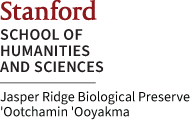Gutknecht, Jessica Lucille Mentzer (2007) Exploring long-term microbial responses to global change. Ph.D. Dissertation, Department of Soil Science, University of Wisconsin-Madison.
Soils have been gaining more and more attention as a potential source of feedback to rising atmospheric CO2 and future climate change, but reported results to date are unfortunately often contradictory. In this work I studied microbial community response to long-term multiple global change manipulation from several perspectives (baseline fluctuation over time, response to global change manipulation over time, and shifts in community physiology after long-term global change manipulation) to explore microbial community dynamics as a context in interpreting results. The research setting is the Jasper Ridge Global Change Experiment (JRGCE), consisting of elevated CO2, elevated temperature, elevated precipitation, and nitrogen deposition treatments in a full factorial design. I examine long-term (2001-2006) and intraannual (four dates in the 2001-2002 growing season) microbial community response to JRGCE manipulations using lipid analysis. I also measure extra-cellular enzyme activity, and lastly ask how microbial physiological capacity (change in response of lipid composition or function to short-term carbon and nutrient addition) shifts after eight years exposure to global change manipulation. I found that microbial community biomass and composition in control soils appeared to oscillate about a central mean, while intra-annually only rhizosphere-dwelling organisms appear to fluctuate. In treated soil, microbial biomass, community composition, and enzyme activity were all significantly related to treatments with N added, more so than with other treatments. I also found that patterns may develop during several years and may also fluctuate intra-annually. Finally, I found that prior exposure to eight years of elevated temperature, nitrogen addition, or elevated precipitation did alter microbial community response to short-term nutrient additions. This is among the first work to examine microbial community from many perspectives together: community structure, community function, annual versus intra-annual variation, and possible shifts in community level physiology. This effort underscores the importance of microbial context in understanding experimental results and ideally, in predicting soil microbial response to future global change.



